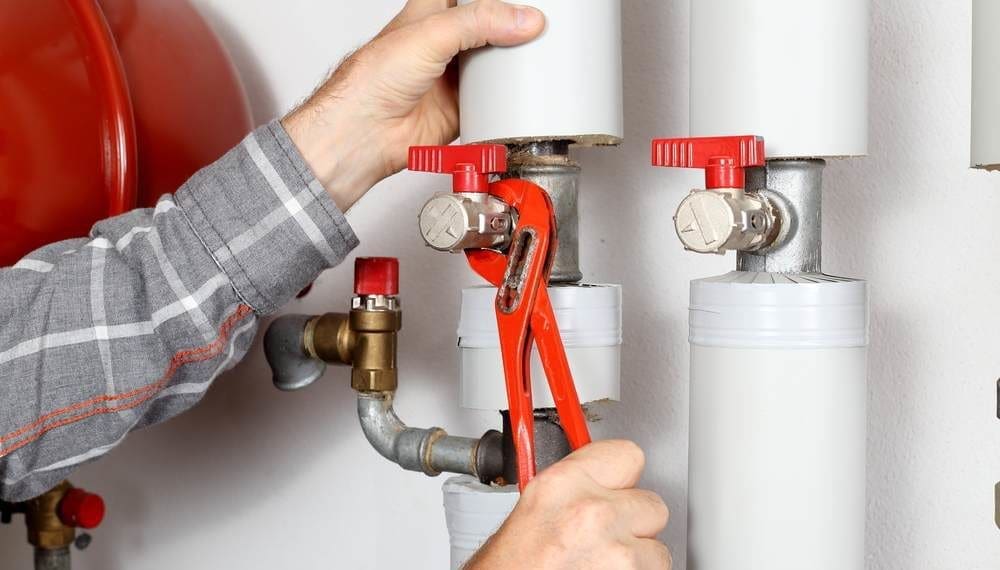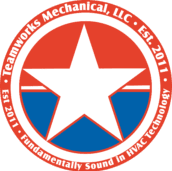Troubleshooting Furnace Gas Line Issues
If your furnace's gas line is causing you trouble, no need to worry! We're here to help. There are some typical problems that homeowners have with their furnace gas lines. We'll go over the steps you can take to figure out and fix problems like issues with the gas supply and gas leaks. So, let's start working on these furnace gas line problems together!
Identifying Gas Valve Issues
If your heat plant isn't warming up as it should, the problem might be with the gas valve. The first thing to do is find out what's wrong. Keep an eye out for signs like no heat, strange smells, or a pilot light that's yellow. These things can show there's a problem with the gas valve. Don't worry, we're here to help you figure it out and get your heat plant working again. Let's start by identifying those gas valve issues and finding a solution.
Gas Valve Troubleshooting Steps
Now that you've found the gas valve issue, let's troubleshoot to fix your heat plant. Here's what you need to do:
- Check the Gas Supply: Make sure the gas is flowing to your heat plant and the valve is open.
- Inspect the Pilot Light: Ensure the pilot light is burning blue. Relight it if needed.
- Clean or Replace Filters: If the filters are dirty, clean or change them to keep the gas flowing.
- Check Electrical Connections: Tighten loose connections to help the valve work right.
- Look for Gas Leaks: Check for leaks and get help if you find one.
- Adjust Gas Pressure: Make sure the pressure is right using a manometer.
- Lubricate Moving Parts: If you hear strange sounds, lubricate the parts for smooth operation.
Following these steps should help you fix the gas valve issue and get your heat plant working. If you're unsure or uncomfortable, it's best to contact an HVAC professional for help.

Check Gas Supply:
Before you start figuring out what's wrong with your gas valve, take a moment to check the gas supply to your heat plant. Make sure the gas is turned on and there are no problems with the supply. If the gas valve is closed, just open it, and see if that fixes the issue. This quick check can save you time and make the troubleshooting process easier, so don't forget to confirm the gas supply before doing anything else.
Inspect the Pilot Light:
When you're troubleshooting your heat plant's gas valve, the pilot light is something you need to check. It should have a steady blue flame. If the flame is not on or looks yellow, it could mean there's a problem with the gas valve. You can try lighting the pilot light again to see if that fixes it. If it doesn't, you might need to look into the gas valve more or get help from an HVAC technician.
Clean or Replace Gas Valve Filters:
Keeping your heat plant's gas valve working well means taking care of it regularly. One important thing to do is clean or change the filters in the gas valve. Over time, these filters can get clogged with dirt and stuff, which can slow down the gas going to your heat plant. If you clean or replace these filters often, it keeps the gas flowing right and prevents problems with your gas valve. Just make sure to follow the maker's instructions for cleaning or changing the filters, and if you need help, it's okay to ask an HVAC technician.
Verify Electrical Connections:
When you're trying to fix your heat plant's gas valve, don't forget to look at the electrical connections. Sometimes, if these connections are loose or not working right, the gas valve won't do its job. Take a moment to check them and tighten any that are loose. It's a small thing, but it can really help get your heat plant working again. If you're not sure about these connections or don't feel comfortable working with them. It's smart to get a professional HVAC technician to help you. Always remember, safety is the most important thing when it comes to electrical connections!
Check for Gas Leaks
Gas leaks are not good because they're dangerous and can mess up how your heat plant's gas valve works. To find out if there's a gas leak, you can use a gas leak detector or soapy water. Put the soapy water around the gas valve area and see if any bubbles show up. If you see bubbles, it means there's a gas leak, and you should call a professional HVAC technician right away. Remember, safety is super important when you're dealing with gas leaks. So it's best to get help from a pro if you're not sure or don't feel comfortable fixing it yourself.
Calibrate the Gas Pressure:
Calibrating the gas pressure is a big deal when you're fixing your heat plant's gas valve. If the gas pressure is not right, it can mess up how the valve works and cause issues with your heat plant. To do this, you'll need a manometer to measure the pressure and adjust it to match what the maker says. This makes sure the gas going to your heat plant is just right for it to work well. Calibrating the gas pressure can be a bit technical, so if you're not sure or don't feel comfortable. It's smart to get a professional HVAC technician to help. They know how to do it safely and make sure your heat plant works smoothly.
Lubricate Moving Parts:
For your heat plant's gas valve to work well, it's good to put some lubrication on the moving parts from time to time. After a while, these parts can get stiff or start making strange noises, which means they need some lubrication. To do this right, use the kind of lubricant the maker suggests. This will help the moving parts work smoothly, reduce friction, and make your gas valve last longer. Just make sure to follow the maker's instructions and put the lubricant on all the parts that need it. It's a simple way to take care of your heat plant and stop problems from happening later on.
Conduct a Safety Test:
Before you start fixing your heat plant's gas valve, make sure you're safe. First, turn off the gas supply and then check the valve for any problems or leaks very carefully. If you smell a lot of gas, leave the place right away and call the gas company in your area. Safety should always come first when you're dealing with gas stuff, so if you're not sure it's safe, get help from a professional.
When to Seek Professional Help
If you keep having problems with your heat plant's gas valve, even after trying to fix it, it's a good idea to get help from a pro. Professionals know a lot about dealing with tricky gas valve problems. They can figure out what's wrong and fix it right. Plus, they'll make sure your home stays safe, so you don't have to worry about any gas-related issues. If you're not sure or don't feel good about fixing it yourself, it's smart to call a professional.
Strong Gas Odor:
If you smell a lot of gas near your heat plant's gas valve, you need to move fast. It might mean there's a gas leak, which is really dangerous. Get out of there right away and call your local gas company for help. Gas leaks can be really bad for your safety, so don't ignore them. It's better to be safe, so let the pros handle it.
Continuous Gas Valve Problems
If your heat plant's gas valve keeps causing problems. It can be really frustrating and worrying. These issues might include the valve not working right. Heating problems, or gas leaks happening a lot. One reason for these continuous problems could be a broken valve part or dirt and junk clogging things up. If that's the case, you might need to clean or change the valve. It's also important to make sure the gas pressure and supply are good for the valve to work right. If you're not sure how to deal with these ongoing gas valve issues, it's best to get help from a professional. That way, you can avoid more problems and stay safe.
Complex Electronic Components:
Dealing with tricky electronic parts in your gas valve can feel a bit overwhelming. But no need to stress! When you're trying to figure out what's wrong with these parts, it's important to know a little about how they work. Look for wires that are loose or not connected. Circuit boards that don't work right, or sensors that are broken. If you don't feel comfortable working with these electronic things. It's better to let the experts handle it. They know all about these complicated parts, and it's important to be safe. So, don't be afraid to ask for help when you need it!




















